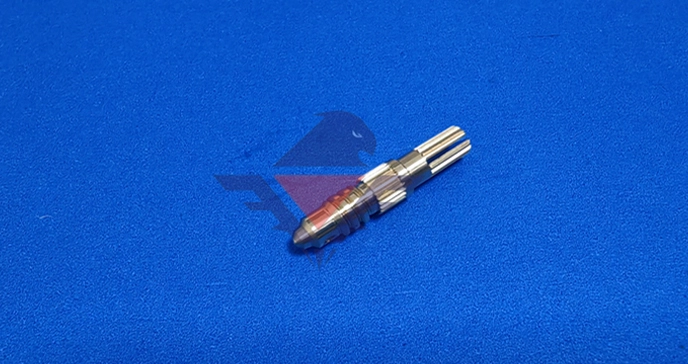Screw Machine Products: Precision Components for Industrial Applications

# Screw Machine Products: Precision Components for Industrial Applications
## Introduction to Screw Machine Products
Screw machine products represent a cornerstone of modern manufacturing, providing precision components for countless industrial applications. These specialized parts are created using automatic screw machines, which have evolved from simple mechanical devices to sophisticated CNC-controlled systems capable of producing complex geometries with remarkable accuracy.
## The Manufacturing Process
The production of screw machine products involves a highly efficient machining process where raw material – typically metal rods – is fed into the machine and shaped through various cutting operations. Modern screw machines can perform multiple operations simultaneously, including:
– Turning
– Drilling
– Threading
– Grooving
– Knurling
This multi-tasking capability allows for the creation of finished parts in a single setup, significantly reducing production time and costs while maintaining tight tolerances.
## Common Materials Used
Manufacturers select materials for screw machine products based on the intended application and required properties. Popular choices include:
Brass: Known for its excellent machinability and corrosion resistance, brass is frequently used for plumbing fittings, electrical components, and decorative hardware.
Stainless Steel: Chosen for its strength and resistance to corrosion, stainless steel finds applications in medical devices, food processing equipment, and marine components.
Aluminum: Lightweight yet durable, aluminum is ideal for aerospace components, automotive parts, and electronic enclosures.
Keyword: Screw Machine Products
Carbon Steel: Offering good strength at a lower cost, carbon steel is commonly used for industrial fasteners and machinery components.
## Key Applications Across Industries
### Automotive Sector
In the automotive industry, screw machine products serve as critical components in fuel injection systems, transmission assemblies, and braking systems. The precision and reliability of these parts contribute to vehicle performance and safety.
### Medical Equipment
The medical field relies on screw machine products for surgical instruments, implantable devices, and diagnostic equipment. These components must meet stringent quality standards and often require special surface finishes for biocompatibility.
### Electronics Manufacturing
Electronic devices incorporate numerous small, precision screw machine parts in connectors, switches, and housings. The miniaturization trend in electronics has pushed screw machine technology to produce increasingly smaller components with exacting specifications.
### Aerospace Applications
Aerospace applications demand components that can withstand extreme conditions while maintaining precise functionality. Screw machine products in this sector include hydraulic system components, fasteners, and instrumentation parts.
## Advantages of Screw Machine Products
The widespread use of screw machine products stems from several key advantages:
High Precision
Modern CNC screw machines can hold tolerances within ±0.0005 inches, ensuring parts meet exact specifications for critical applications.
Cost Efficiency
The automated nature of screw machining allows for high-volume production at relatively low per-unit costs compared to other manufacturing methods.
Material Conservation
Screw machines generate minimal waste as they precisely remove only the necessary material, making the process more sustainable than alternatives.
Versatility
With proper tooling and programming, screw machines can produce an enormous variety of part geometries, from simple pins to complex multi-feature components.
## Quality Control Measures
Manufacturers implement rigorous quality control protocols to ensure screw machine products meet industry standards. These typically include:
– First-article inspection
– Statistical process control
– Dimensional verification with coordinate measuring machines (CMM)
– Surface finish analysis
– Material certification
## Future Trends in Screw Machining
The screw machining industry continues to evolve with technological advancements. Emerging trends include:
Increased Automation: Integration with robotic loading systems and automated inspection equipment is reducing labor requirements while improving consistency.
Smart Manufacturing: The adoption of Industry 4.0 technologies allows for real-time monitoring of machine performance and predictive maintenance.</p